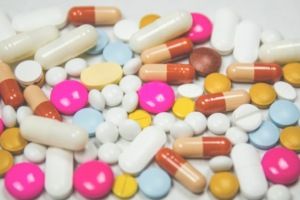News
Danes pay too much for medicines, study reveals
This article is more than 8 years old.
Generics offer little break in prices of prescribed meds

Danes face ‘sticker shock’ every two weeks, it seems (photo: CCO)
Although generic versions of popular prescription drugs are meant to ofter a price break to patients, they seem to bring little relief in Denmark.
Danes spend nearly 3 billion kroner each year on generic prescription drugs at the country’s chemists, and the unusual way that competition among companies is handled sends most of that money into the coffers of pharmaceutical companies, according to a study by the competition and consumer body Koncurrence og Forbrugerstyrelsen.
An expensive fortnight
The tangled methods of competition has encouraged the agency to call on the government to intervene.
“There are a lot of red flags here,” Koncurrence og Forbrugerstyrelsen head Jakob Hald told Finans. “This is something politicians need to address.”
Researchers documented that since 1998 there have been 3,000 examples of the prices of generic drugs spiking by more than 50 percent over a 14-day period.
Strange formulas
Pharmaceutical prices in Denmark are based on 14-day cycles. The lowest-priced drugs capture between 60 and 70 percent of the market over the two-week period. This allows for companies to actually ‘lose’ the price war during a cycle, but still maintain a relatively large market share. That, combined with every company knowing what its competitors have historically offered as ‘low prices’, conspires to keep prices artificially inflated.
“It is incredible that prices can rise 50 percent from one price period to the next,” said Hald. “It shows that there are challenges to be met in regards to competition.”
READ MORE: Medication prices to remain constant for the next two and a half years
Industry association IGL, representing the companies selling generics, emphasised that prices in Denmark are probably among the lowest in the EU.






































